In a state with easy access to the Atlantic Ocean and numerous lakes, it isn’t uncommon for residents to enjoy recreational boating and similar activities with family and friends. Whether it’s using boats, jet skis, or alternative watercraft, New Jersey is a hotspot for those wishing to experience the joy of riding across open waters. However, these activities carry unique risks and liabilities for those involved. If injured in a boating accident, it’s good to know what insurance and legal options are available.
For perspective, the United States Coast Guard reported over 4,000 accidents related to recreational boating in 2019 alone. Over 550 of those accidents involved a tragic loss of life, with 613 individuals never returning home to their families. A further 2,559 individuals suffered injuries proven to be the result of accidents that could have been avoided if those responsible had been more careful. In New Jersey alone, a total of 110 watercraft accidents occurred throughout 2019, with 4 individuals dying and 65 suffering serious, but non-fatal injuries.
In all of these cases, it is the right of the wronged and their loved ones to seek compensation for the pain they endured due to the actions of others. While money will never bring back the ones you lost, compensation will help you handle the unexpected financial burdens of your losses. In New Jersey alone, over a million dollars was paid in damages to those experiencing personal injury or loss in a boating accident in 2019. If you find yourself in such a position, don’t be reluctant to demand compensation for injuries.
Laws Covering Boating and Boating Accidents
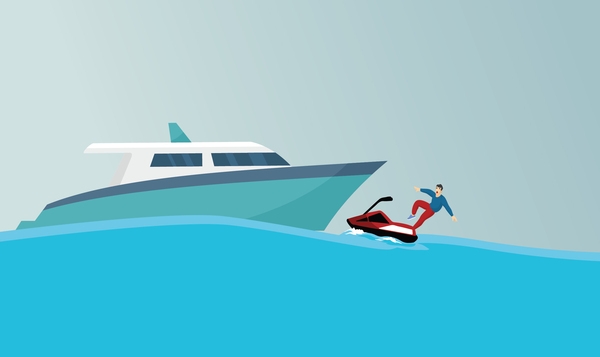
Both federal and state regulations are in place to govern the practice of recreational boating and manage the reporting of boating accidents at sea. Federal statutes provide a set of general rules and practices that all states must adhere to in their own statutes, but may build upon to serve their particular needs.
For the purposes of federal statutes, the United States Code consolidates the general and permanent federal statutes which apply to maritime activities. The section of the code applying to recreational boating is found in Title 46, subtitle II – Vessels and Seamen (46 U.S.C. §§ 2101-15109). These statutes include general provisions for the operation of vessels, rules for regulations and inspection of vessels, procedures for reporting and investigating marine casualties, identification of vessels, and requirements for state boating safety programs.
Additionally, subtitle III – Maritime Liability (46 U.S.C. §§ 30101-31343) establishes the general principles of liability for boating accidents. In particular, Public Vessels Act 46 U.S.C. §§ 31101-31113 covers liability for accidents involving public vessels. These federal statutes are essential to decisions made during a personal injury lawsuit.
New Jersey has also passed its own state-specific regulations for boating, including for determining liability in various circumstances. These regulations are found in NJ Rev Stat § 12, and an attorney experienced in personal injury resulting from boating accidents can guide you through the information when an accident occurred. Also, be aware that most criminal statutes explicitly apply to matters of boating as they do on land.
However, the criminal act of leaving the scene of a boating accident is given separate treatment from that of leaving the scene of an auto accident. This is covered in NJ Rev Stat § 2C:11-5.2. Whether on land or at sea, it is generally sound advice to not leave the scene of an accident until reported to law enforcement, unless there is a need for immediate medical attention.
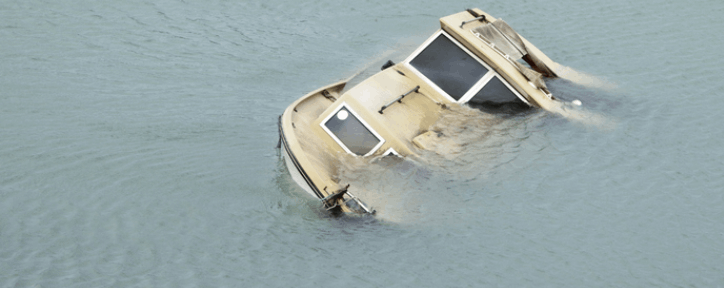
Determining Liability in a Boating Accident
When a boating accident occurs and a passenger is injured, it is important to recall what led to the accident occurring. Such information will help to determine liability in any personal injury case, but especially in the case of boating accidents where it can be difficult to reconstruct an accident on constantly flowing and changing waterways. Here are a series of key questions that a boating victim and his/her attorney will want to address:
- Was the operator irresponsible in handling their vessel?
- Obviously, a vessel’s operator is the first individual to be questioned on the matter of how and why a boating accident occurred, as their actions are often the ones which most affect how a voyage goes. Try to recall how the boat operator acted and treated their position. Did they act in a reckless or irresponsible manner, frequently ignoring their position’s duties, or were they in control of themselves and of the vessel at all times? If the former, you may have a case against the operator as the liable party.
- Molyneaux v. Molyneaux is a good example of a case where an operator’s reckless behavior caused an accident. The man being sued had driven his boat at high speeds which would make it susceptible to turning over when crossing a wake left by another vessel. Therefore, he was held partially liable for the injuries sustained by his mother.
- Another case also highlights that a claimant must prove reckless behavior in order to establish liability, rather than presuming that an operator is automatically liable for damages. In Complaint of Cirigliano, because the claimants failed to prove any form of reckless behavior on the part of the operator and owner of a vessel, Cirigliano, he was able to receive an exoneration or limitation of his liability for an accident in which his vessel collided with two water-skiers.
- Was the operator boating under the influence?
- New Jersey has laws governing the usage of alcohol and narcotics while operating a vessel. NJ Rev Stat § 12:7-46 explicitly prohibits the operation of vessels while under the influence of intoxicating liquor, narcotic, hallucinogenic, or habit-producing drug or with a blood alcohol concentration (BAC) of 0.08% or more by weight of alcohol. Additionally, if the operator is not the owner of the vessel, the law also prohibits an owner from allowing any person to operate their vehicle while that person is in any of these conditions. In cases where this does occur with personal injury resulting, there is a strong case against the operator and/or owner for damages incurred due to the criminal act.
- Was the accident caused by human error, and if so, whose error was it?
- While not necessarily a nail in the coffin for those who erred, details such as a mistake in judging the depth of water and similar errors can be used to determine liability for an accident. It is important to note that ignorance of factors does not mean that one is free of responsibility for considering them. Of course, there are reasonable exceptions to be made based upon circumstances.
- Was the boat seaworthy, and was it equipped properly with safety gear?
- Every operator and owner is responsible for ensuring the seaworthiness of their vessel, and they should regularly perform inspections of it for flaws that may lead to boating accidents. If they discover things such as damage or details which make the vessel unsuited for a particular day of boating, then they should not embark until the issues are fixed. Additionally, they must be prepared for emergency situations which call for the use of items such as life jackets. If deaths were to occur as a result of a boating accident in which safety gear was inadequate or in short supply, there is almost certainly a case to be made against the operator and owner.
- Complaint of Cirigliano is a good case for highlighting that claimants must prove a vessel to be unseaworthy to support liability on the part of an owner or operator. Because the claimants failed to provide proof of such a quality, the owner of the vessel was able to ask for exoneration or limitation of liability for the case despite his vessel being involved in a boating accident that caused personal injury.
- Was the boat defective in some way?
- This is almost certainly a detail that would need to be investigated by a trained professional, as most individuals do not have the expertise necessary to inquire about such technical details. When an owner acquired a vessel, they may not have been made aware of a flaw present in the underlying design of the vessel. If that flaw was instrumental in causing an accident, then it would not be the sole fault of the operator or the owner, if any blame at all fell to them. Instead, liability would fall, at least in part, on the designers of the vessel and the sellers of it for providing a defective product.
- The Molyneaux v. Molyneaux case is a good example of this, showing how a manufacturer can be found at fault for a boating accident. While the operator of the vessel was reckless in his handling of the boat, the manufacturer was held more responsible because the boat could not handle the conditions it was operating under, nor protect its passengers during the resulting accident.
- Was the operator trained and licensed in utilizing their vessel?
- New Jersey requires that all operators of power vessels be trained and licensed in their operation with certain exceptions. If an operator is not trained or licensed and does not fall into an exemption listed in NJ Rev Stat § 12:7-61, he/she will be guilty of breaking the law and face fines. Of course, this also implies that they are at fault, at least in part, for any accident that occurs while they operate a vessel. This fault also falls to any owner who allows an untrained or unlicensed individual to operate their vessel without fulfilling a specified exception.
- Of course, these questions are easily answered only if you were a passenger on the responsible party’s vessel. If you were operating a separate vessel or were a passenger on a separate vessel, you will have to rely upon police reports and other eyewitnesses in order to answer these questions. You will also have to consider if multiple individuals are liable for the damages caused as New Jersey uses a modified comparative fault model to determine compensation.
- An attorney will be able to handle the necessary investigations and filing of motions in order to discover the cause of a boating accident resulting in personal injury. Additionally, an attorney is capable of representing the facts of the case for you, providing the best arguments supporting the liability of those responsible.
- No matter what the facts of your case are, if you are injured in a boating accident due to the actions of another, you are entitled to seek compensation from them. Generally, claims are filed with insurance companies to cover your injuries, or damages are covered by filing a lawsuit against those liable.
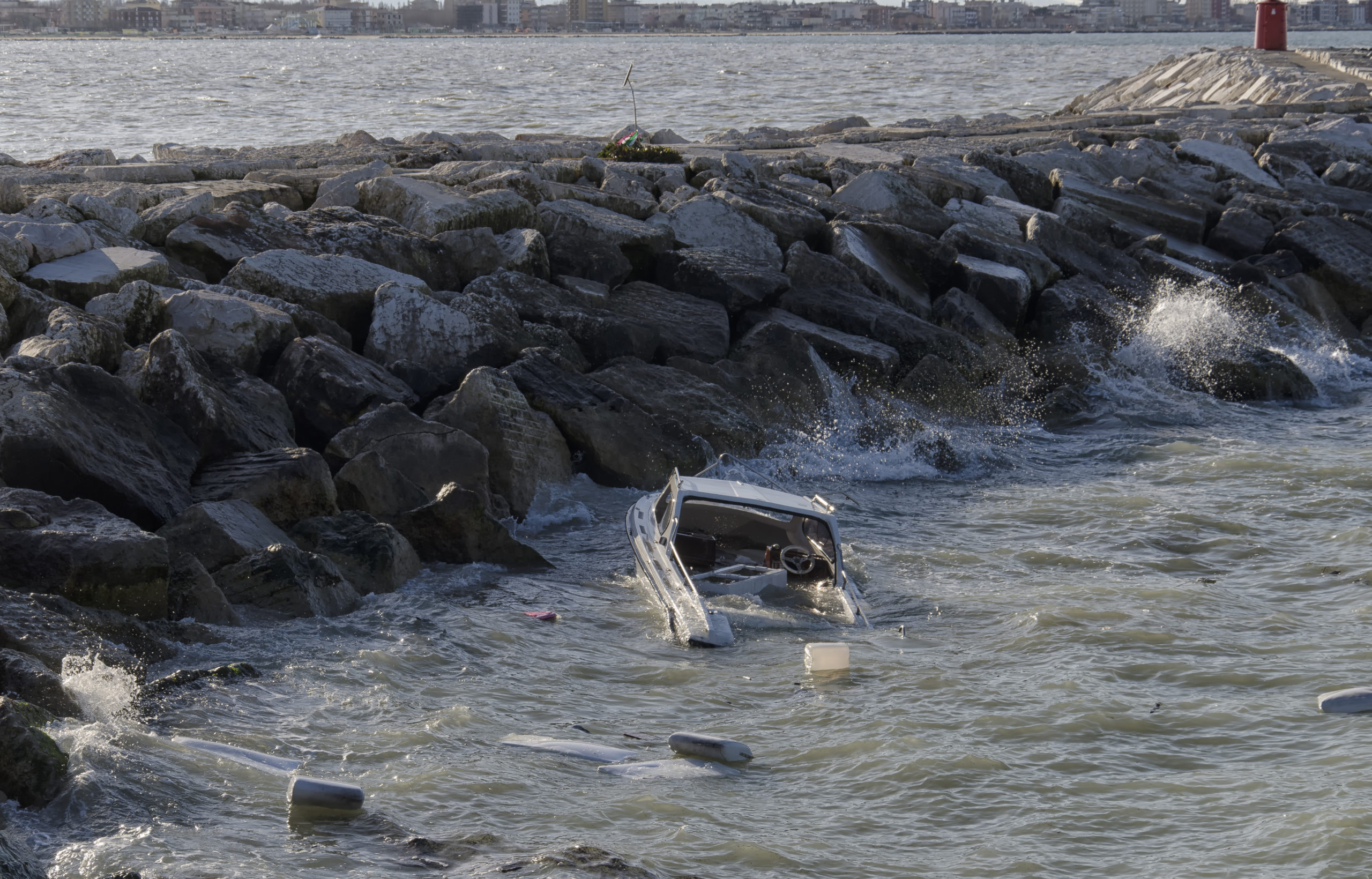
Seeking Compensation Through Insurance
Unlike auto insurance, owners of vessels in New Jersey are not required to purchase boat insurance, which will usually include boat liability insurance. A victim cannot be certain of the exact compensation they may receive from an owner or operator through their insurance, as no minimum coverage is required. However, a reasonable owner and operator will have coverage to protect themselves and their property, as they are required by law to pay for damage they are found liable for.
If you are injured in a boating accident caused by someone with boat liability insurance, you should be aware that such insurance includes two types of coverage generally. First, watercraft bodily injury liability will cover medical expenses and lost wages for those injured by the policyholder with their watercraft. Second, watercraft property damage liability coverage will cover the costs for repairs and replacement of property damaged by the policyholder with their watercraft. Both of these will have compensation limits, but outside of unusual circumstances, you should expect these policies to cover your expenses as a result of another’s mistake.
If you are liable for an accident and have boat insurance, make sure that you understand your policy’s terms, limitations, and exclusions. A policy may include exceptions that limit or eliminate its coverage based upon who was injured during an accident, as was the case in Zacarias v. Allstate Ins. Co.. Zacarias had purchased a boat insurance policy which included an intra-family exclusion, which excluded coverage for injury to the insured and any member of their household. Unfortunately, Zacarias was later found liable for a boating accident in which his wife was injured, and she sued him after Allstate denied him coverage based on the intra-family exclusion. The court ruled in favor of Allstate, as the plain text of the policy included the exclusion regardless of what intent Zacarias may have had in purchasing it.
Additionally, a liable party’s homeowner’s insurance may cover expenses due to boating accidents. These policies will often include a limited amount of coverage for boats and other watercraft owned by the policyholder. However, this coverage is not required to cover injuries and accidents, so you will need to speak with an attorney who can investigate the liable party’s homeowner’s policy for applicability to your case.
For example, in the case of Farmers’ v. Allstate, a dispute arose over whether a homeowner’s insurance policy or a watercraft liability policy should cover a drowning death suffered when the insured watercraft was grounded on a sandbar in the middle of the river. The homeowner’s insurance policy, as it excluded coverage for injuries and accidents, was ruled as also excluding injuries suffered when a boat was grounded. Thus, it fell to the watercraft liability policy to cover the costs of compensating for the loss of life, even though the watercraft in question was grounded at the time of the accident.
Finally, the boating victim’s own health insurance may pay for medical expenses and lost wages. If your health insurance policy will cover injuries suffered in an accident, it will generally be the primary payer for your expenses. However, if your costs exceed your coverage, then you will need to recover damages from the liable party. Of course, even if your costs are covered, your insurance company may seek to recover costs from a liable party as is generally their right.
Types of Boating Accidents and Statistics
Despite being grouped together under a single phrase (boating accidents), no two watercraft accidents are ever quite the same due to the numerous circumstances both within and outside of one’s control. The most obvious circumstances within the control of individuals, the choice of vessel, is itself a broad category as there are over a dozen recognized categories of vessels by the United State Coast Guard. These include the following seven most common, shown alongside the total number of deaths and injuries involving them in 2019.
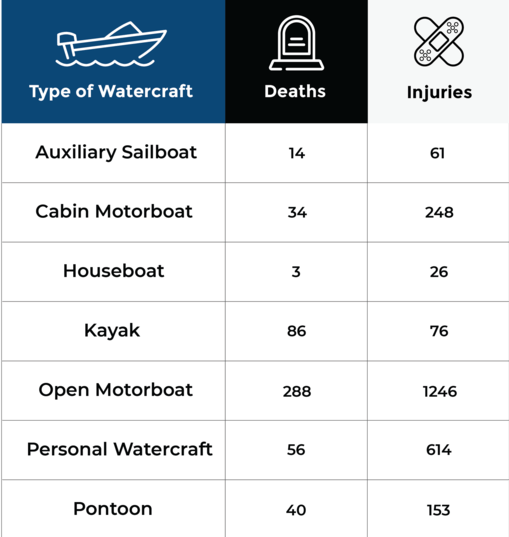
Of course, it seems natural to focus on open motorboats and personal watercraft, which include jet skis, based upon the data. They are the two sets of vehicles that include the highest combined number of deaths and injuries that year, and they are often the first vessels to come to mind when thinking about boating accidents. However, one must also consider if these vessels were rented or privately owned at the time of usage and if they were operated by the legal renter or owner at the time of the accident.
In addition, consideration must be given to the primary factors leading to an accident. Was it a case of human error in judgment? Had the weather turned against the victims at the worst possible time? Did mechanical problems occur, and if so, could they have been handled with reasonable preventative maintenance? Was it a case of boating under the influence that led to a tragic outcome? All of these and many more are quite possible scenarios in boating accidents.
Many of the primary factors for boating accidents can be prevented with responsible behavior in operating a vessel. But when responsible behavior isn’t practiced, what sorts of accidents do they lead to? The seven most common types of accidents in 2019 were:
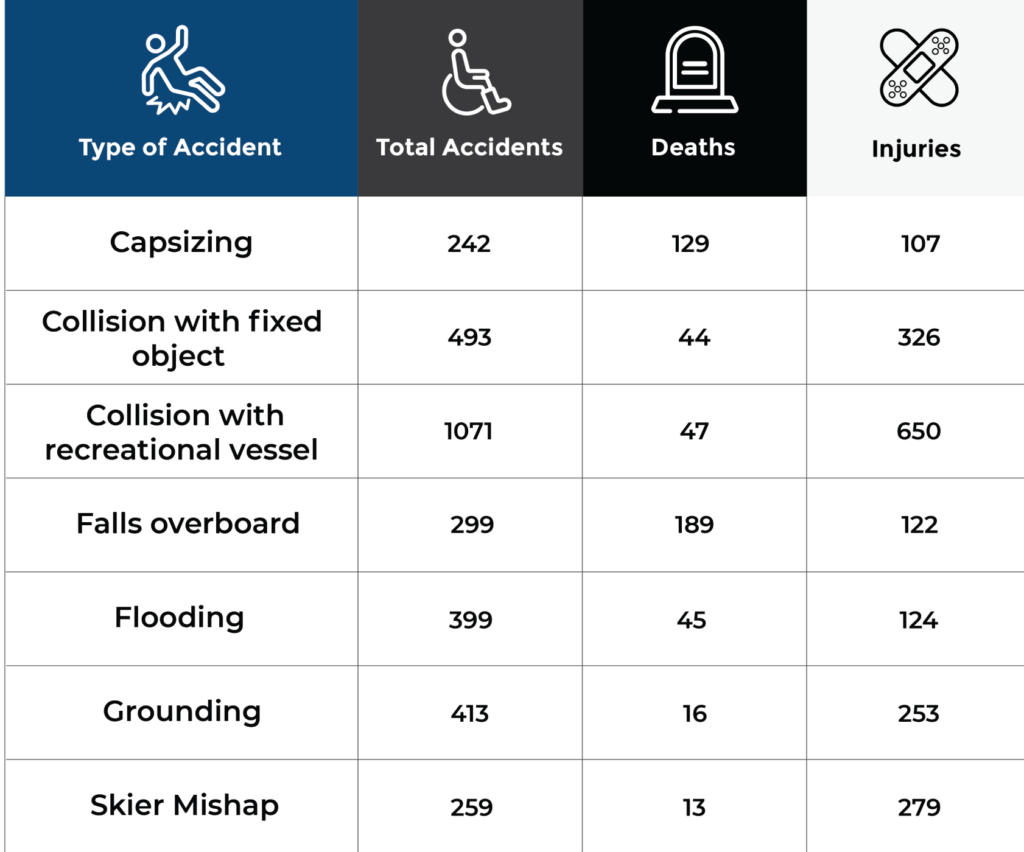
These sorts of details may seem unimportant to a victim of a boating accident. However, by taking steps to learn about the cause of negligence, experienced attorneys can evaluate an injured person’s situation and determine if he/she may be entitled to compensation. They will be able to uncover the true cause of an accident through well-practiced investigative methods, then file a claim.
Can I Sue the State?
New Jersey has passed laws protecting it from liability in boating accidents on its public waterways. The Tort Claims Act, also known as Title 59 of the New Jersey Revised Statutes (NJ Rev Stat § 59), requires that claimants prove that public property owned and operated by the government created a dangerous condition which, when the public property was used in a reasonable fashion, proved to be the cause of a claimant’s injuries. Claimants must also provide medical proof of their injuries with a requirement that the costs are in excess of $3,600.
Even if a claimant manages to prove all of these factors, the state may still be protected from liability for various reasons. For example, in Troth v. State, the injured spouse of a deceased man faced dismissal of her claim against the state government due to the limitation of liability it holds for accidents resulting from unimproved public works. While the court did rule that the waterway was improved due to the presence of the dam which led to the accident, meaning the state was possibly liable, such exceptions and exemptions can apply to many cases.
In situations that may involve the state of New Jersey, it’s best that you contact a professional attorney experienced in handling the intricacies of the government’s liability limitations when considering a suit against the government for personal injury in a boating accident.

Case Study: $500,000
What makes this case unique: Tampered evidence and unethical, un-lawyer-like behavior by the defense attorney.
Frequently Asked Questions
First off, unless there is a medical emergency, do not try to leave the scene of the accident or the closest safe location. As a part of reporting procedures, you will need to make a statement to the police on what occurred from your perspective. These statements are essential to the investigation process.
If another operator or owner is at-fault for the accident, you will need to collect their information and prepare for filing a claim against them and their insurance company for damages. Responsible operators and owners will generally have boat liability coverage, and that coverage is specifically meant to pay for the damages resulting from their actions. However, that coverage has no set minimum amount, so be prepared to work with an attorney to determine what their policies are.
No matter what the circumstances, speak with an experienced NJ personal injury attorney in the aftermath of a boating accident. They will be able to walk you through the process of filing claims and collecting necessary information for your case, and they will be able to represent you during the following negotiations to claim your compensation.
The laws and rulings on the subject of personal injury from boating accidents will still apply to your case, and you should work with an attorney to discover information about the at-fault party’s actions and insurance. The questions asked of you will be somewhat different because you were not aboard the operating vessel.
Instead, you will be asked questions about your actions while swimming. There will be questions about if the waterway was cleared for safe swimming or not, and you will also be asked if you were aware of its usage by watercraft and had taken reasonable action to avoid those vessels. Make sure that you are perfectly honest when answering these questions, as your answers will help to determine liability and will be held against you if found to be false or misleading.
This depends on the complexity of your particular case and if it goes to litigation rather than being settled out of court with the at-fault party’s insurance company. Negotiations require a collection of eyewitness testimony, police reports, and other documents relating to the incident and the insurance claims being made before talks occur. As such, pre-litigation negotiations alone can take anywhere from a few weeks to six months.
Most cases will be settled out of court through negotiations, but there are always exceptions. If it goes to litigation, the legal process of discovery will begin as the courts attempt to discover the truth. This process may take anywhere from a few months to an entire year, and negotiations will continue during this period as cases become clearer.
Once discovery has taken place, all relevant information and arguments will be presented to a judge and jury for consideration. Your attorney will work to prove the validity and strength of your claims before an impartial set of arbitrators, and this process may take several months to a year as well. Finally, if a judgment is rendered by the court without a negotiated settlement, either party which disagrees with the ruling may appeal it to a higher court for consideration.
All in all, the settlement process could take anywhere from a few months to several years depending on the complexity of a case. However, do not be persuaded by an insurance company to accept a quick and easy settlement before speaking with an attorney. By accepting settlement, you give up your right to pursue further legal action in the matter, even if you are underpaid for the injuries sustained. Always speak with an attorney experienced in personal injury cases and boating accident cases before making key decisions.
In certain cases, negligence by state officials in operating and maintaining waterways and lakes which leads to boating accidents can leave the state liable for injuries. However, New Jersey has certain protections against claims that may limit or eliminate the government’s liability for these injuries. You should take the time to seek legal consultation in these manners, as it can be especially difficult in these cases to determine if liability means that you will receive compensation.
What Should I Do if I’ve Been Injured in a Boating Accident?
If you or a loved one have been injured in a boating accident, contact Rosenblum Law for a free, no-obligation consultation today. Our experienced NJ personal injury attorneys can analyze the situation and negotiate the best possible settlement for you. Call 888-815-3649 or email us today.


